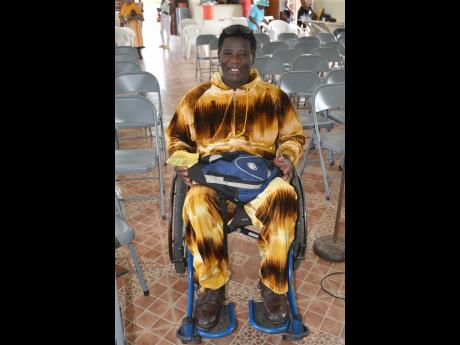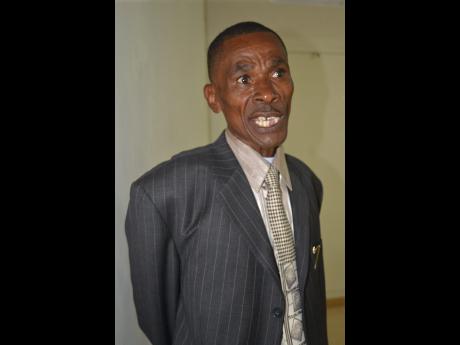Dissing the disabled in Hanover - High public transport costs hurting
WESTERN BUREAU:
Despite the 2014 passing of the Disabilities Act, which mandates the minister with responsibility for transport to ensure that public passenger vehicles cater to members of this community, disabled persons in Hanover are facing hell.
The members of the disabled community in Hanover say they are being pushed deeper into poverty due to the huge expenses they incur when travelling on some public passenger vehicles in the parish.
It is an issue that Anthony Bingham, president of the recently established Hanover Disability Association, said his organisation will have to tackle over the coming months.
COSTLY, UNFAIR
According to Bingham, not only is it costly to travel but very inconvenient as the public passenger vehicles in the parish are not equipped to facilitate the disabled.
"Some persons, because of the disabilities they suffer, may take up more than one space so they have to pay for additional spaces. Some persons, maybe because of the illness that they suffer, have to charter taxis from where they live to go where they are going, and it is very hard.
"It is unfair when these disabled persons have to travel from within five or 10 miles out of Lucea and have to pay two times their fares and pay fares as the regular commuters," said Bingham.
"In Kingston, persons who are disabled pay half-fare, but in Hanover, the disabled have to pay full fare because there is no structured bus system in Hanover.
"Until we have a structured system, or if it can be nationalised to say that persons who suffer disabilities have to pay half-fare or three-quarters and take off the burden to pay full fare, they will continue to suffer," added Bingham.
He argued that they should be given a fare subsidy as many are unable to find gainful employment and have to depend on friends or neighbours to survive.
For Balford Bowen, a diver of Green Island, who is wheelchair-bound, his challenge lies with the buses that ply the Lucea, Hanover, to Montego Bay, St James, route.
Bowen said he has had to pay up to three times the regular fare as the drivers contend that he uses several seats.
He argued that one solution would be to introduce a state-sponsored bus system in the parish, similar to the Jamaica Urban Transit Company, but accepts that this could be difficult and is determined to try to survive as best as possible.
"Mi stop taxi and jump inna it and dem put mi wheelchair inna di back and mi gone. The taxi driver dem all right," said Bowen.
"People with disabilities who have skills deserve more than just moving in a wheelchair. They need scooters where you can just go around and sell and help yourself.
"Because me did have one (scooter) and me even lift up mi bag a flour pon it inna supermarket and come back a mi shop. Since it bruck dung, a now mi feel disabled. The parts wear out and mi can't get dem a Jamaica, and a problem fi get it overseas," added Bowen.
Yvonne Kerr, who wears a prosthetic leg, told The Sunday Gleaner that she avoids public transportation as much as possible, as some bus drivers are reluctant to provide assistance, or even refuse to carry disabled persons.
Kerr is adamant that disabled-friendly buses with ramps are needed in the parish.
"It is compulsory I travel on public transportation; someone takes me around. But some of the times I have to. Even last week I took public transportation to Hopewell and it was a challenge because when I go out by the park, some of the drivers did not want to take me.
"I had my walking stick but proper seating was not there, and I wanted them to drop me by the plaza to cross the road or help me to cross the road and they said they couldn't bother," complained Kerr.
THE DISABILITIES ACT (Act of 2014)
PART X. Public Passenger Vehicles
40. (1) The minister with responsibility for public passenger vehicles shall ensure, as far as is practicable, the provision of vehicles that are accessible to and usable by persons with a disability.
(2) In this section, 'public passenger vehicles' includes any motor vehicle or any other conveyance for transport by road, rail, air or water that provides the general public with a general or special transportation service on a regular or continuing basis.


